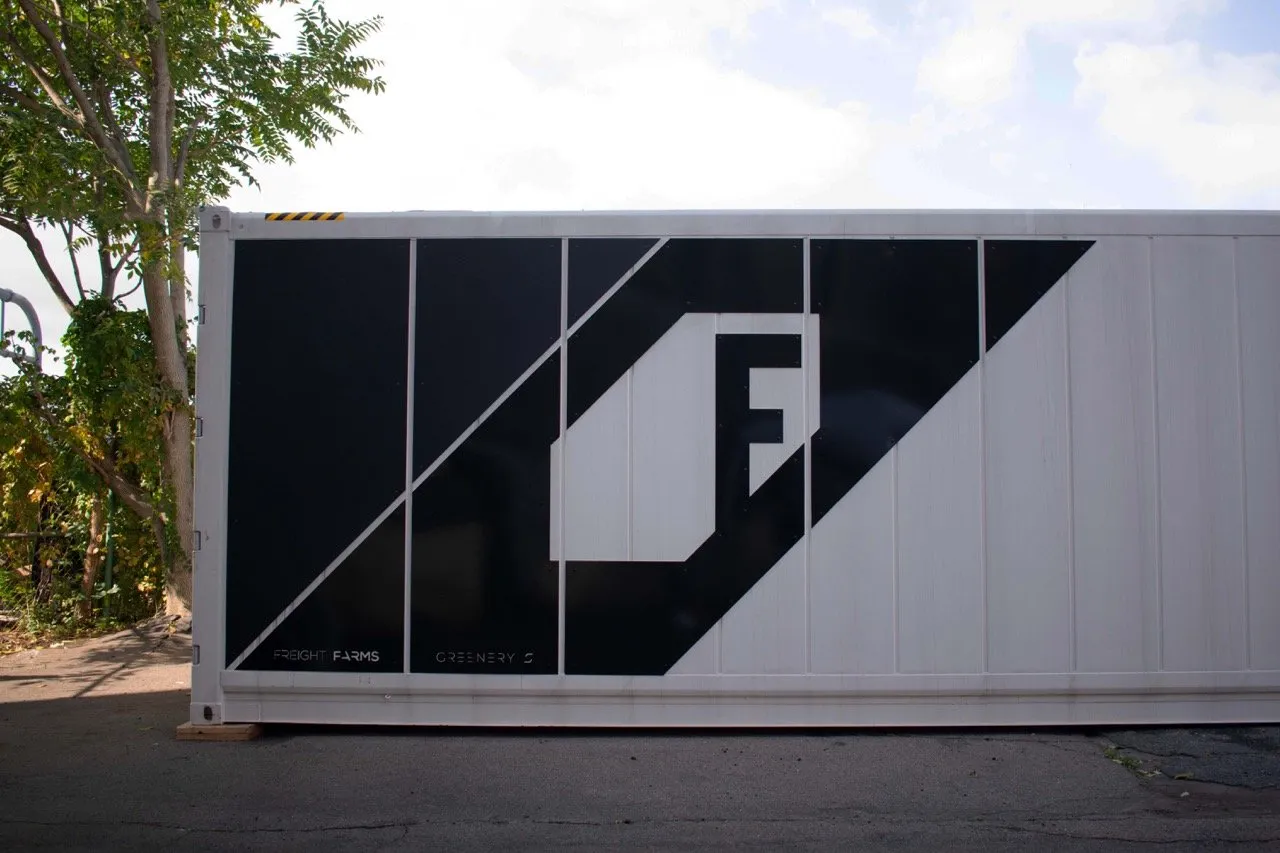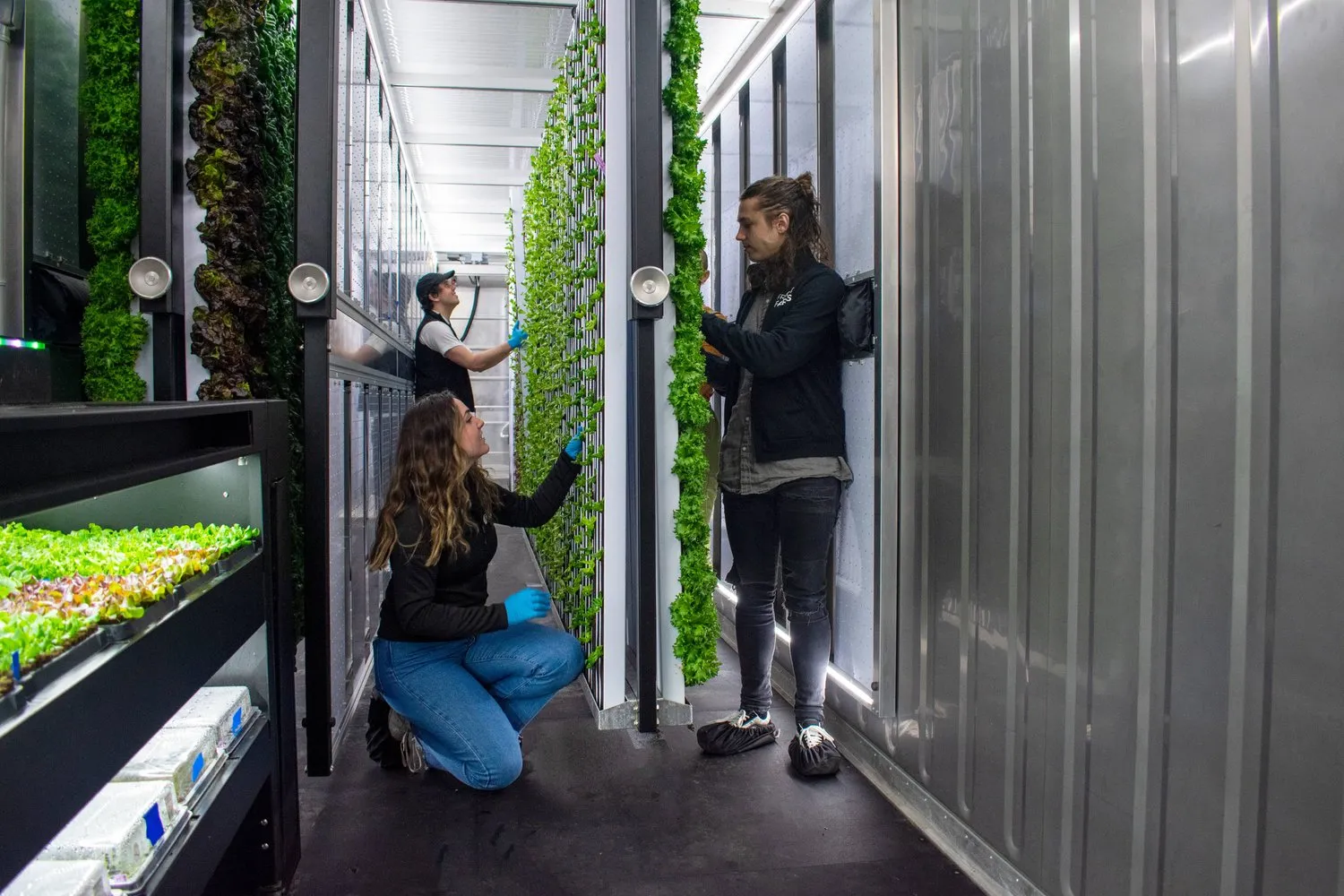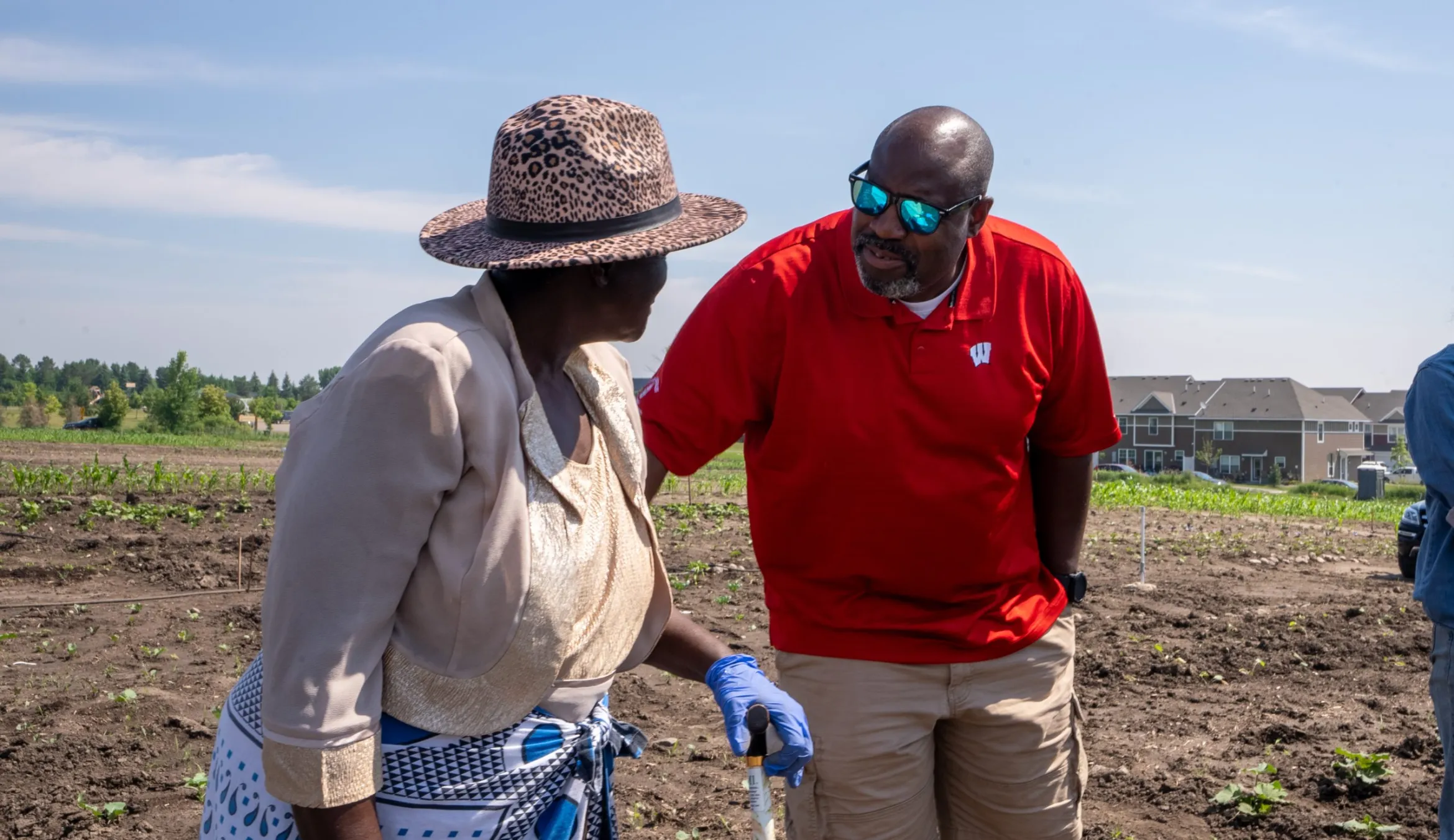This story was originally published in the Daily Yonder. For more rural reporting and small-town stories visit dailyyonder.com.
A new initiative seeks to increase the number of farmers of color through a new freight farm to be placed in rural Minnesota.
Route 1 is an organization focused on increasing food access, specifically by supporting Black, Brown, and Indigenous emerging farmers in the state, said Marcus Carpenter, founder of the organization.
In March, Route 1 placed its first freight farm in the rural community of Loretto, population 650. It will be the first Black-owned freight farm in Minnesota.
“It allows the farmer…to take these farms and really place them wherever the need exists,” Carpenter told the Daily Yonder.

A company based out of Boston is supplying the refurbished shipping container upgraded with the latest technology, he said. “[It] really turns these farms into hydroponic powerhouses. So these farms have an opportunity to grow up to 1,000 pounds of fresh produce per week,” Carpenter added.
Nyra Jordan, social impact investment director with the American Family Insurance Institute for Corporate and Social Impact, is funding the project. The Institute was founded in 2018 to invest in social entrepreneurs and create community partnerships.
“We have concerns around hunger in America,” Jordan told the Daily Yonder. “But at this local level, and the work that Route 1 is doing, there is a solution…We feel by supporting markets and Route 1, it’s an innovative business model that will equip farmers with the land and resources that everyone needs for a thriving farming operation. And so we’re hoping that we can support economic opportunities and tackle hunger.”
In Minnesota, one in nearly ten households experience food insecurity, according to the Minnesota Department of Health.
The Institute funded $250,000 for the initial project, Jordan said.
“The freight farm will also enhance Route 1’s commitment to community economic growth,” Jordan said. “It’ll offer training and its technology to new and existing farmers, particularly in communities of color.”
The small container also helps keep the carbon footprint low, he said. Route 1 will hire three to five individuals to work the freight farm and will then distribute the food grown to local communities.

“We feel like through the use of our freight farms, we’ll be able to give the ability and the access to folks who might not have access to farmland – [they] will be able to get access to be able to grow good vegetables within their neighborhoods, thereby increasing the access for families to food,” he said.
Marcus Carpenter, Founder, Route 1“We feel like through the use of our freight farms, we’ll be able to give the ability and the access to folks who might not have access to farmland.”
Route 1 also focuses on health equity. “People of color are dramatically and exponentially affected by those metrics,” Carpenter said. The death rate for Black Americans is generally higher than white people for heart disease, stroke and diabetes, among other conditions, according to the U.S. Department of Health and Human Services Office of Minority Health.
Jordan added that the project will also help boost Route 1’s Seed of Success Youth Academy, which introduces young people from diverse backgrounds to agriculture, and the fulfillment of growing and providing food.
“It will also enable farming to happen year-round, particularly within the winter months, like what we’re experiencing right now,” she said.
Carpenter is hoping the Loretto location is just the beginning.
“From there, we plan to expand throughout the Twin Cities, throughout the state of Minnesota, and then, hopefully, throughout the region in the country after that,” he said.
This story has been updated to include the new March delivery of Route 1’s first freight farm. The delivery was initially expected in February.
